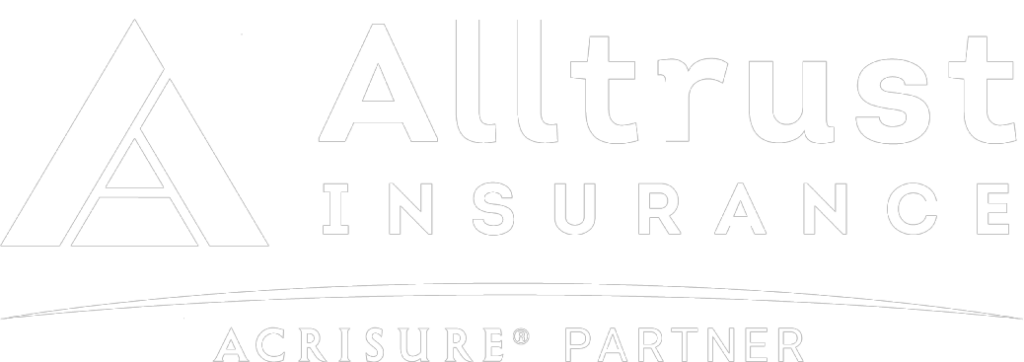The Americans with Disabilities Act of 1990 (ADA) makes it unlawful to discriminate against a qualified individual with a disability. This also applies to discrimination against individuals with disabilities in public accommodations, transportation, and telecommunications. This segment of law is enforced by the U.S. Equal Employment Opportunity Commission (EEOC). Although this act was signed into law in 1992 and many may be quite familiar with it, the recent COVID-19 pandemic has complicated many aspects of the law. As an employer, it’s important to understand the in’s and out’s of this act and how to deal with it during these already troubling times.
Important Information on ADA
Who Is Protected?
Before we get into the details about the ADA and how the coronavirus may cause issues regarding this act, we must identify the individuals who are protected. According to the ADA, a person has a disability if they have physical or mental impairments that significantly limit or restrict major life functions such as hearing, seeing, speaking, breathing, performing manual labor, walking, or learning. In order to be protected by the ADA, any individual with a disability must be able to perform the necessary functions of their job with or without accommodations. The ADA does not interfere with an employer’s right to hire the best-qualified employee for a job, it’s simply in place to prohibit employers from discriminating against an applicant or employee because of their disability.
What Are Essential Functions Defined As?
Essential functions are the basic job duties that each employee must be able to perform — with or without accommodations. Each job should be carefully examined as the essential functions differ from position to position. When considering if a function is essential to the job, you should keep in mind the degree of expertise that it takes to complete it, whether the reason the position exists is to perform that particular function, and the number of employees who are able to complete that task. Your reasoning as to which functions are essential, in addition to a written job description prepared before interviewing for a job, will be considered by the EEOC.
What Are My Responsibilities To Comply?
A reasonable accommodation is any adjustment made to a job or work environment to aid a qualified individual with a disability. These accommodations may help them perform job functions or enjoy equal access to benefits available to other individuals in the workplace. Reasonable accommodations may include:
- Modified work schedules.
- Providing readers or interpreters.
- Making the workplace easily accessible to those with disabilities.
- Job restructuring.
- Acquiring/modifying helpful equipment and devices.
It is illegal and a violation of the ADA to fail to provide reasonable accommodation to the known limitations of a qualified employee with a disability. The only exception is if providing a reasonable accommodation would put an undue hardship on the operation of your business. Undue hardship means that it would require significant difficulty or expenses to provide an employee with an accommodation.
Can I Ask About An Individual’s Disability?
In compliance with the ADA, it’s unlawful to:
- Ask applicants whether they’re disabled or about the severity of their disability.
- To require applicants to take any type of medical exam before making a job offer.
You are allowed to ask the applicant about job-related functions, as long as questions aren’t phrased in terms of a person’s disability. You may also ask an applicant to demonstrate how they would perform the job-related functions, with or without reasonable accommodation.
After a job offer is made, you may require that an applicant take a medical examination if everyone else who will be working in the same job category also takes the examination. You may change the job offer after viewing the medical examination as long as you show that the reasons for exclusion are work-related and necessary to conduct business. You must also be able to show that there was no reasonable accommodation that would have made it possible for the individual to perform the job.
COVID-19 And The ADA
The EEO laws, including the ADA act, must continue to be abided during the time of the COVID-19 pandemic, but they do not interfere with the health guidelines made by the CDC. The ADA is relevant to the pandemic in three different ways: first, the ADA regulates employers’ disability-related questions and medical examinations for all applicants and employees including those who do not have disabilities. Second, employers are prohibited from excluding individuals with disabilities from the workplace due to health or safety unless they pose a direct threat. Third, reasonable accommodation is still required during a pandemic. All of these standards were created to ensure that individuals with disabilities remain protected during these turbulent times.
Further Requirements And Regulations
Although the ADA makes it clear that individuals with disabilities are protected during a pandemic, there are still many other questions that employers often ask. For example, how much information may an ADA-covered employer request from employees who report feeling ill at work or who call in sick? Employers may ask such employees if they’re experiencing flu-like symptoms such as fever, chills, cough, or sore throat. However, employers are still required to maintain information about an employee’s illness as a confidential medical record to comply with the ADA. Under the ADA, employers are also not allowed to ask employees whether they have a compromised immune system or chronic health condition. Confidentiality of medical records and information must continue to be upheld during the pandemic for all individuals including those with disabilities.
Meet Your Trusted Partner in the Tampa Bay Region
Insurance regulations and employment laws are ever-changing and, especially in times like these, it can get quite difficult to keep track of everything. There is nothing more important than having a trusted insurance partner to keep you well informed and in compliance with the ADA. Our Alltrust Insurance compliance team has the knowledge, support, and resources to help you comply with any and all regulations. We pride ourselves on giving you the best possible assistance regarding employee benefit mandates and HR training. If you are an employer who wants to ensure their corporation is always in compliance with the latest regulations, feel free to contact us today.
This blog post is not intended to be exhaustive nor should any discussion or opinions be construed as legal advice. Readers should contact legal counsel for legal advice.
Register for the Timely ADA Issues for Employers Webinar on October 15th here!





